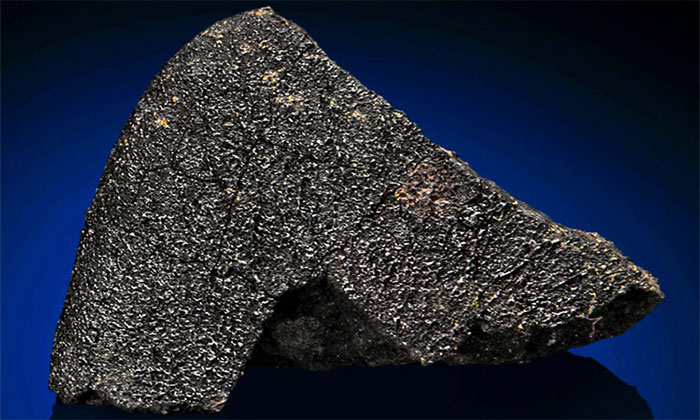The fragment of the Winchcombe meteorite weighs only 1.7g but holds immense scientific value, selling for £9,256.
A pea-sized fragment of a meteorite that fell in Winchcombe last year was auctioned for a price 120 times higher than that of gold of the same weight. The black meteorite fragment, weighing 1.7g, sold for an impressive £9,256, far exceeding initial estimates. Another fragment of this meteorite was priced at £20,000, but still cheaper when calculated by weight.

The 1.7g fragment of the Winchcombe meteorite sold for a price far exceeding initial estimates. (Photo: Christie’s)
Scientifically speaking, the Winchcombe meteorite is considered the most significant space rock ever collected in the UK. It contains pristine chemical components from the time the Solar System was formed. This was one of the most notable items at the annual meteorite auction held by Christie’s in London on February 23.
At the end of February 2021, thousands witnessed a fireball streaking across the sky in southern England. Experts later located its fragments in Winchcombe and the surrounding areas. Residents collected the charred debris from the roadside, gardens, streets, and fields, subsequently donating them to the national collection of the Natural History Museum (NHM) in London.
Scientists state that the Winchcombe meteorite is classified as a CM2 carbon chondrite and will provide insights into the processes that formed planets, including Earth, over 4.5 billion years ago. Over 90% of the materials collected around Winchcombe are now public resources, available for researchers worldwide to study. A 100g piece of the meteorite is displayed in a glass case at the NHM for visitors to admire.
Christie’s has been hosting meteorite auctions since 2014. Many fragments at this year’s event belong to the Macovich Collection. The collection’s manager, Darryl Pitt, praised the beauty of these objects, stating, “Most meteorites are artifacts from the early days. It is rare to find something that can be more captivating than a meteorite with such aesthetic appeal.”


















































